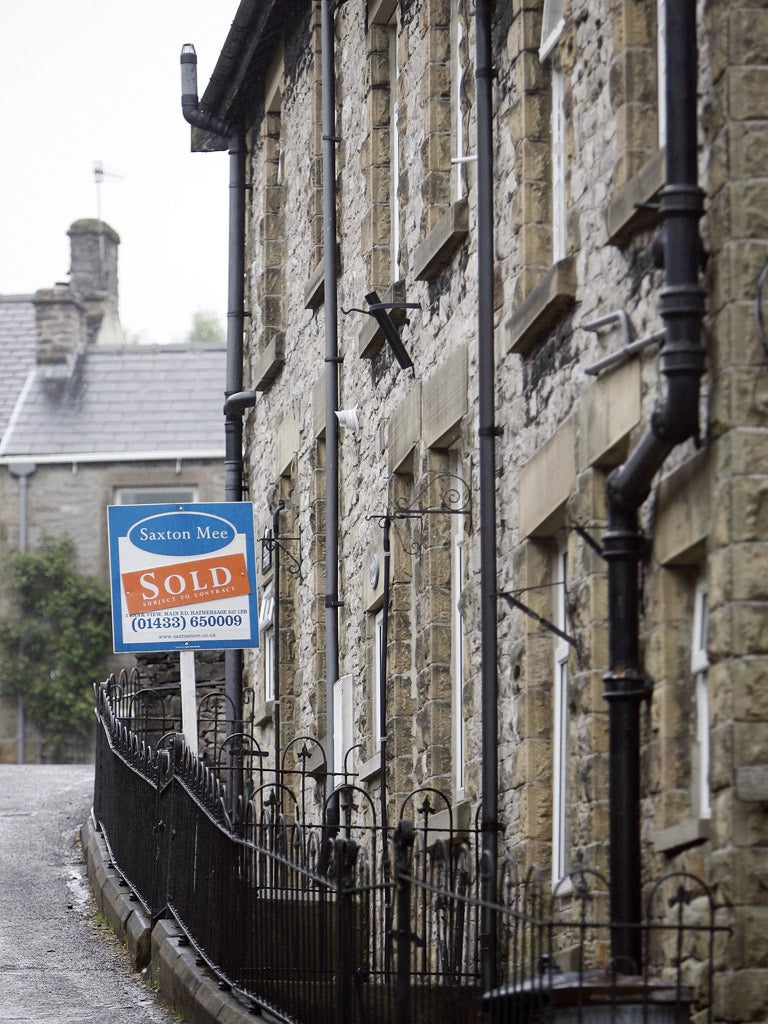
Your support helps us to tell the story
From reproductive rights to climate change to Big Tech, The Independent is on the ground when the story is developing. Whether it's investigating the financials of Elon Musk's pro-Trump PAC or producing our latest documentary, 'The A Word', which shines a light on the American women fighting for reproductive rights, we know how important it is to parse out the facts from the messaging.
At such a critical moment in US history, we need reporters on the ground. Your donation allows us to keep sending journalists to speak to both sides of the story.
The Independent is trusted by Americans across the entire political spectrum. And unlike many other quality news outlets, we choose not to lock Americans out of our reporting and analysis with paywalls. We believe quality journalism should be available to everyone, paid for by those who can afford it.
Your support makes all the difference.House prices have managed to weather the recession by recording their first monthly increase since February, a study said today.
Prices increased modestly by 0.3% month-on-month in May following a 0.3% drop in April, with a lack of homes on the market helping to keep prices up, Nationwide said.
House prices are 0.7% lower than they were a year ago and stand at £166,022 on average, although this is a smaller drop than the 0.9% year-on-year decline seen in the previous two months.
Nationwide's chief economist Robert Gardner said: "Demand for homes remains subdued on the back of weak labour market conditions, but the lack of homes coming on the market is providing support for prices.
"This is in part a reflection of the low rate of building in recent years which has failed to keep pace with household formation."
The Nationwide house price index was first produced in 1952 and has run throughout the Queen's reign. Prices have increased almost 88 fold over this period, from £1,891, while the cost of goods and services has increased more slowly, with a 25 fold rise.
House prices have remained fairly "stable" over the last 18 months, despite the tough economic backdrop, Nationwide said.
The study said house prices are still high relative to incomes, at more than five times the average earnings, well above the long-term average of four times earnings.
A recent spate of soaring rents as those unable to get onto the property ladder have remained in rented homes also suggests that demand for housing is stronger than supply, the report said.
Rents swallow up nearly 40% of earnings in London and average house prices there are more than six times earnings, while people in the South generally spend a bigger share of their income on housing than those in the North, the study said.
It continued: "This is important because it provides further evidence that housing more generally is in short supply, reinforcing the view that any efforts to reinvigorate the housing market should focus on the demand and supply side of the market."
The Government recently launched its NewBuy scheme in a bid to boost the housing market and construction industry. Under the initiative, buyers can purchase a new-build home with a fraction of the usual 20% deposit often demanded by lenders.
But analysts have argued that this alone is not enough to kick-start the subdued market, amid consumer caution due to a weak economy and high unemployment, and a string of lenders recently putting up their mortgage rates and tightening their borrowing criteria.
Bank of England figures yesterday showed that mortgage approvals for house purchase were below their six-month average last month.
PA
Join our commenting forum
Join thought-provoking conversations, follow other Independent readers and see their replies
Comments